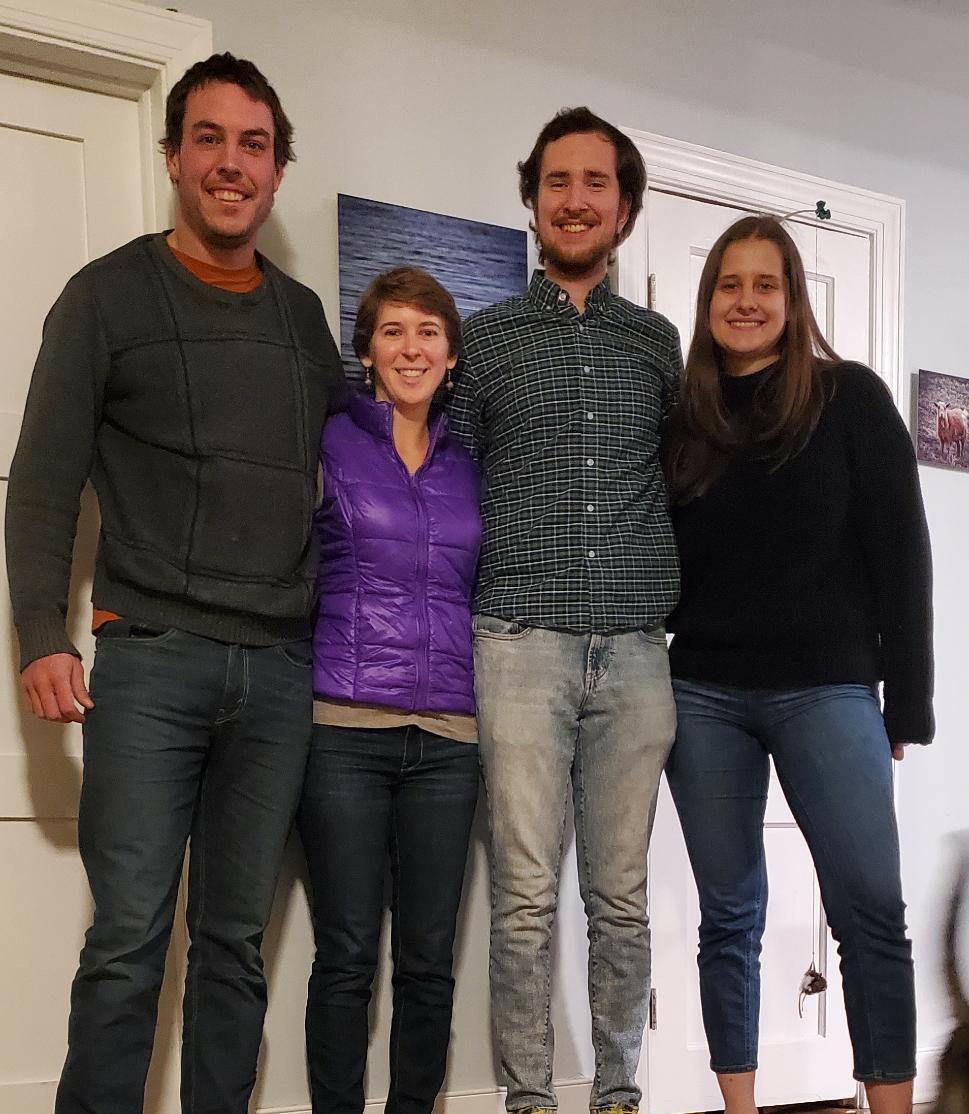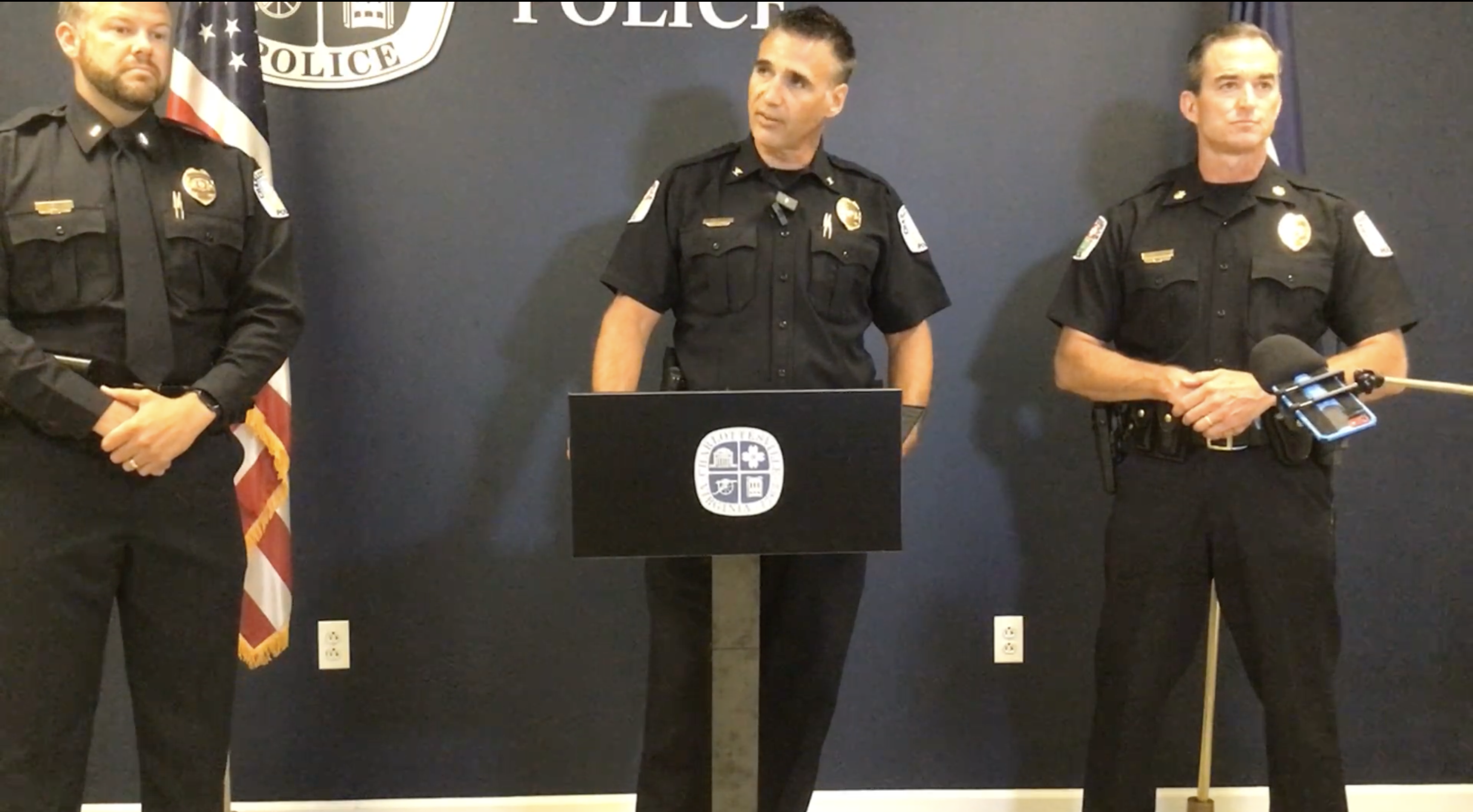The Blue Ridge Community Bail Fund is pushing to increase its funding. The nonprofit, started by students at UVA law school, puts up bail for those awaiting trial, without charging a fee. The bail fund has historically been active in Middle River Regional Jail. Now, the group seeks to expand its capabilities to cover Albemarle-Charlottesville Regional Jail as well.
In its three years of existence, the community fund has been able to pay $197,000 of bail from 85 total bonds. Volunteers say that’s much less than they want to see.
Bail bond comes into play after someone has been arrested and before a trial starts. The bond amount is set by a magistrate and is supposed to serve as insurance that the person will come back for their trial.
“So, in theory, the point of it is not to be punitive,” says Melissa Gilrain, who serves on the board of the Blue Ridge Community Bail Fund. “But if you don’t have money, it is punitive because you get stuck in jail, you lose your job, you lose your house, you lose your kids, you lose all these things.”
The consequence is that the freedom of someone awaiting trial often depends on their wealth. Nationwide, a third of defendants are kept in jail pretrial because they are unable to pay their bail bonds, according to Justice Forward Virginia, an organization that advocates for criminal justice reform. Most of those being held are among the poorest third of Americans, the organization reports.
The other option for someone who can’t afford bail is to call a bail bondsman. The bondsman will pay the bail and charge 10 percent of it to the client. Bail bond is a business, but it’s a business that targets those who are poor and desperate.
The community bail fund serves as an alternative by posting bail when someone calls, and it recuperates the money when the person shows up for their trial. No extra charges.
Sometimes attorneys refer their clients to the bail fund, but more often, it’s word of mouth. Someone can call the bail fund anytime, day or night. The seven board members share the responsibility of answering. A network of volunteers take the money to the magistrate to post the bond.
Taylor Pisano, who also serves on the fund’s board, says the average bond they pay is between $2,500 and $5,000.
“It’s a lot of minor charges, like failure to appear, probation violations, drug possession, petty larceny, or credit card fraud,” Pisano says.
Pisano says many of the cases he sees end in a null process, which means the charges are dropped.
“We just had one case, we posted this guy’s bond in December of 2022 and the case just got finalized and it was null processed, which means they were not guilty on that charge,” Pisano says. “So, that person would have been sitting in jail for a year for something that they’re not guilty of. And that’s a really common thing—it could be as short as two weeks and it could be a year or more.”
The fund’s $40,000 seems like a sizable resource, but even with that amount of money, it has a waitlist. The demand far exceeds the bail fund’s resources, and the majority of the money is almost constantly tied up in bonds waiting to be finalized.
“We get more calls than we can post bonds for,” Gilrain says.
The Blue Ridge Community Bail Fund has historically focused on Staunton’s Middle River Regional Jail, which holds people from Staunton, Waynesboro, Harrisonburg, and Augusta and Rockingham counties, and is over capacity with 629 inmates. But there are other jails in the area the bail fund could help. Closest to home is the 329-person-capacity Albemarle-Charlottesville Regional Jail, with inmates from Charlottesville and Albemarle and Nelson counties. Piedmont Regional Jail is larger, located in Farmville, and has a capacity of 600 people. Central Virginia Regional Jail is in the town of Orange, and holds about 400 people.
“What we would really like to do is to be able to pay bonds at ACRJ, the local jail,” Gilrain says. But compared to the number of people who need the service, the bail fund is too small.
A count on December 31, 2020, by the National Institute of Corrections showed that Virginia has 28,970 people in jail. Not all of them have the option of bail, but many do. There are other community bail funds in the state, the largest in Richmond. There’s also a fund in Tidewater and one in Roanoke. But for many who are waiting in jail, there’s no one to bail them out.





